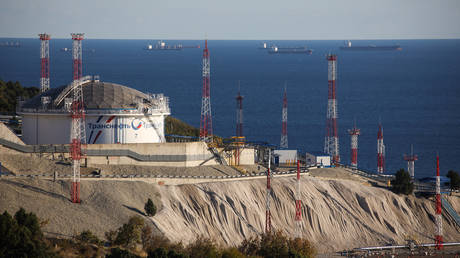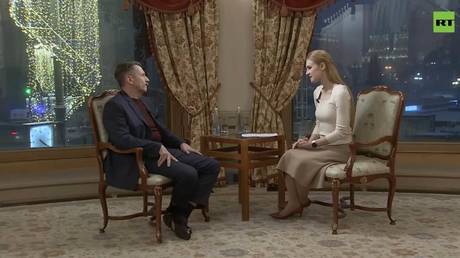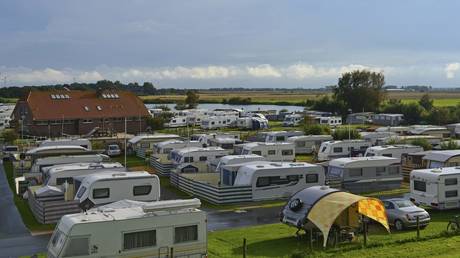Hundreds of thousands left without electricity amid record-breaking heatwave
A record-breaking heatwave has hit Argentina, with temperatures soaring to 45C (113F) in some parts of the country. An associated spike in energy demand has caused grid failures, leading to power cuts. Read Full Article at RT.com

The power grid failed, leaving at least 700,000 people without energy
A record-breaking heatwave has hit Argentina, with temperatures soaring to 45C (113F) in some parts of the country. An associated spike in energy demand has caused grid failures, leading to power cuts.
At least 700,000 people were left without power in Buenos Aires on Wednesday, as residents of the Argentine capital endured sweltering temperatures amid a historic heatwave.
Electricity firms blamed the outage on a huge spike in demand for energy, which in turn caused technical failures and power cuts. The outage came as the temperature rose above 41C in the capital.
The 41.1C recorded on Tuesday at 4.05pm local time is the second-highest reading in the capital since 1906, according to city authorities. Temperatures are forecast to remain high on Thursday and Friday before finally abating on Sunday.
READ MORE: North Korea’s way of fighting fertilizer shortage raises eyebrows
“We have to be very careful these days,” said Buenos Aires city mayor Horacio Rodriguez Larreta, as local leaders warned people to stay out of the sun and remain hydrated.
“This is a heat wave of extraordinary characteristics, with extreme temperature values that will even be analyzed after its completion, and it may generate some historical records for Argentina temperatures and persistence of heat,” meteorologist Lucas Berengua told Reuters.
The heatwave, which has seen the country’s highest temperatures since 1957, has been driven by the Pacific Ocean’s La Nina weather pattern.
Argentina is currently the hottest place in the world, with daily highs exceeding those in Australia.A lack of rainfall has also seen water levels in the Parana River drop to an almost 80-year low.
















